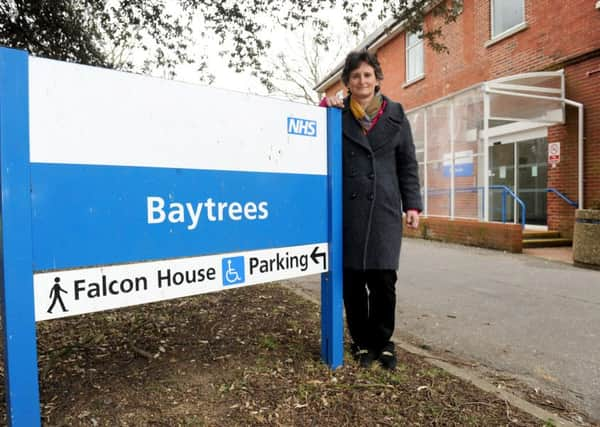Axe falls on Portsmouth alcohol and drug rehab centre for good despite lengthy campaign


The Baytrees Residential Detox Centre, at St James’ Hospital, has now shut its doors – despite fears this will see more pressure piled on the emergency services and see addicts turn to crime.
Solent NHS Trust put forward the closure plan as it said the centre was losing up to £500,000 a year due to insufficient beds being filled and more clients being placed on community treatment programmes.
Advertisement
Hide AdAdvertisement
Hide AdBut critics say the number of people suffering from addiction is rising and community programmes are not adequate for those most at need.
It comes after health and scrutiny panels across Hampshire failed to make formal challenges against the move, so the closure has gone ahead.
Former Baytrees volunteer Matt Goodall, who has been through a drug recovery programme, is devastated.
He said: ‘There is a whole wealth of knowledge of addiction that has been gathered over 20 years which has pretty much been lost.
Advertisement
Hide AdAdvertisement
Hide Ad‘In the long run, it’s going to be a burden on the emergency services, we could see more people on the streets sleeping rough, and crime will go up.
‘Baytrees transformed a lot of lives. I don’t know what would have happened to a lot of these people. Some of them weren’t able to make it through the door unaided.
‘It’s worrying, because there has been a big drive towards community-style detoxes. It can work, but for people with really complex mental needs or who need intense detoxification, they won’t get that in the community.’
Jane Muir, who runs The Recovery Cafe, in Kingston Road, Buckland, says she has seen the way people have turned their lives around.
Advertisement
Hide AdAdvertisement
Hide AdShe said: ‘Baytrees was an excellent resource for the people of Portsmouth.
‘I came to realise three or four years ago there was a concerted effort on the part of the commissioners to get rid of it. It has not been available for people to choose as a detox.’
Portsmouth South MP Flick Drummond, who held meetings with Baytrees staff in a bid to thrash out a rescue plan, says she’s bitterly disappointed.
She said: ‘I did fight for it. I spoke to health secretary Jeremy Hunt about this. It’s very disappointing.
Advertisement
Hide AdAdvertisement
Hide Ad‘But I know that there are mechanisms in place to make sure people aren’t left in a worse situation. I have been talking to other stakeholders and other organisations to make sure this area is covered.
‘But I am going to be monitoring it very closely, because we have a huge alcohol problem in the city and I have got to make sure nobody suffers because the Baytrees unit has been closed.’
Solent NHS Trust says Baytrees closed on Monday following an extensive period of engagement with stakeholders.
WHY PANEL DID NOT INTERVENE
THE councillor who was in charge of Portsmouth’s health, overview and scrutiny panel when it studied the Baytrees closure has explained why it never challenged the plans.
Advertisement
Hide AdAdvertisement
Hide AdCllr John Ferrett said councils couldn’t afford to keep booking beds for clients due to funding cuts – and ordering Solent NHS Trust to think again wouldn’t have helped.
Cllr Ferrett said: ‘The scrutiny panel could have referred it.
‘But ultimately, the councils wouldn’t have found any more funding. That’s the issue.
‘If councils are not making referrals, the unit isn’t viable. The panel didn’t have the power to stop this from happening.
Advertisement
Hide AdAdvertisement
Hide Ad‘What it has the ability to do is refer decisions back in certain circumstances and whether they would result in a major change of service.
‘But in these circumstances, I don’t believe we would have had the power to do that anyway.
‘And certainly, there was no indication from the panel – although people weren’t entirely happy – it was about budget constraints and monetary constraints.’